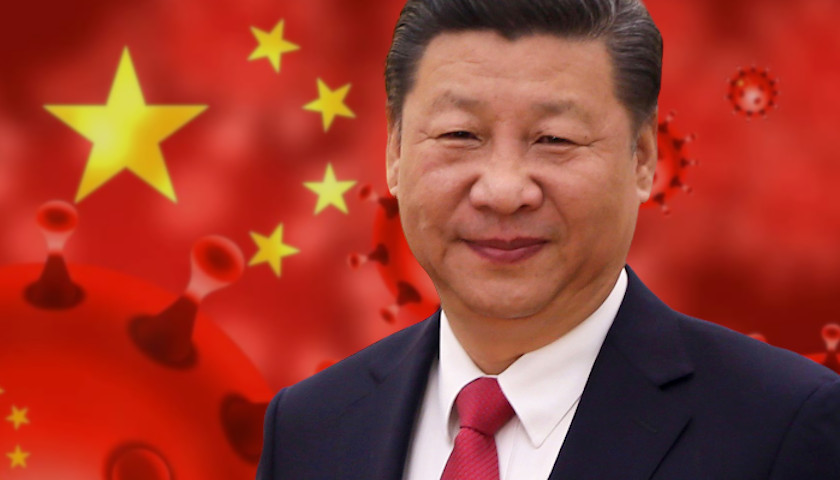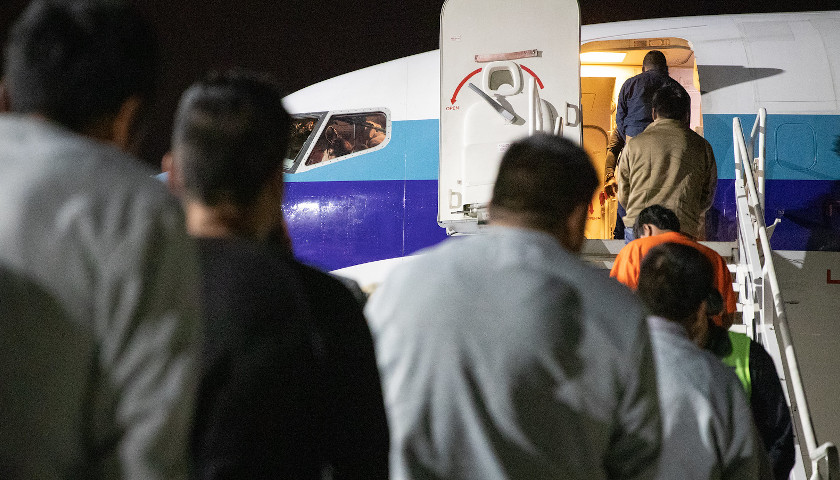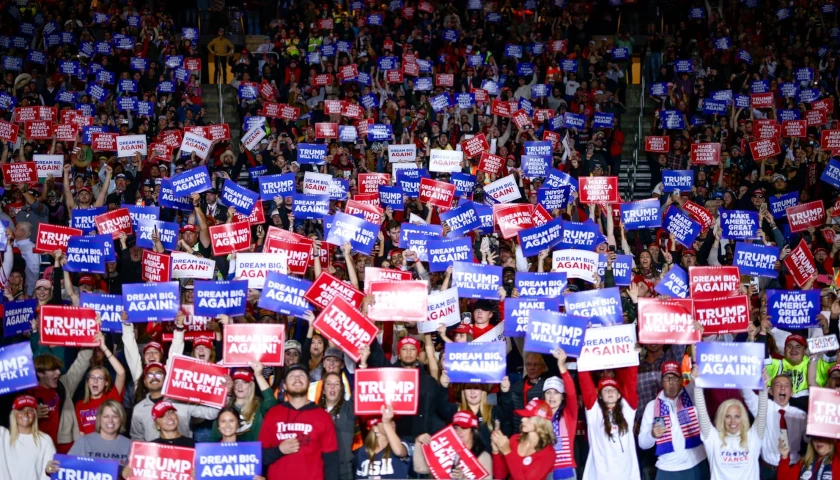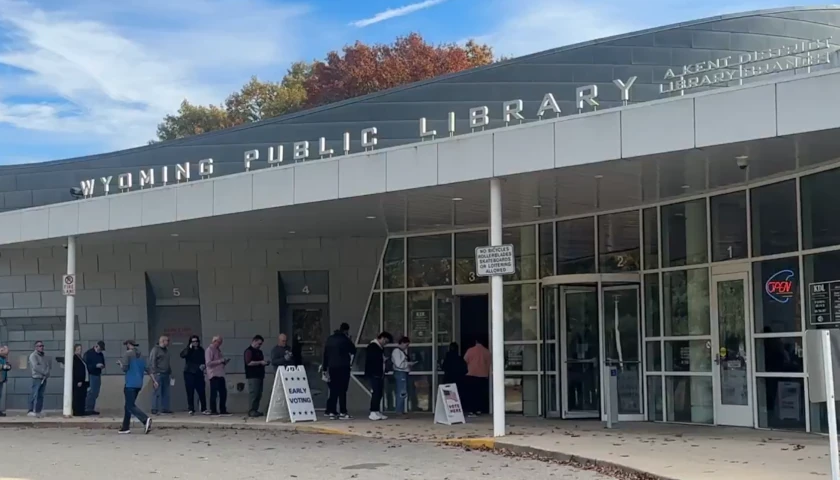by Steve Postal
Last week, the World Health Organization (WHO) approved China’s Sinovac vaccine for COVID-19, following its approval of China’s Sinopharm last month. The WHO can now distribute both vaccines through the COVID-19 Vaccines Global Access (COVAX) program, which distributes COVID-19 vaccine to the developing world. China is poised to export over one billion COVID-19 doses abroad in 2021 alone, according to Chinese state-run media outlet the Global Times.
While the world is growing increasingly interested in China’s culpability in the spread of COVID-19, Chinese media are taking full advantage of China’s vaccine exportation boom to craft propaganda aimed at maligning the West while bolstering China’s own image. This is timely misdirection; recent revelations that a Chinese military scientist had patented a COVID-19 vaccine only five weeks after China admitted the existence and contagious nature of the virus raise questions as to what China knew about the virus and when. Also not emphasized by Chinese media is the degree to which these vaccines are provided “with strings attached,” essentially as bribes.
Chinese media like state-run newspapers XinhuaNet, Global Times, and China Daily craft news surrounding China’s vaccines to portray the West as participating in selfish and incompetent vaccine diplomacy, while portraying China as benevolently and efficiently exporting its vaccine and using such exportation to champion the poor. Similarly, Chinese state media crafts China’s vaccine exportation as a tool to showcase China’s alliances while minimizing conflict with its enemies.
Claim 1: The West, India Are Selfish and Incompetent
Chinese media uses news of China’s vaccine to criticize the West’s vaccine exportation. The first way Chinese media does this is by portraying the West as acting selfishly. A XinhuaNet article criticizes Western vaccine campaigns as fraught with “stockpiling of vaccines and export control,” an “ ‘ourselves first’ approach,” and “vaccine nationalism.” A Global Times article accused the U.S. of “sit[ting] on piles of vaccine stock [while turning] a blind eye to the struggle” of the COVID-19 pandemic. Chinese media also portrays the West as incompetent in its attempts to send vaccines abroad. An article in Global Times states that regarding exportation, “the U.S. keeps making promises without actual moves.”
Of course, Chinese media downplays the facts that the U.S. has already shared 4.5 million doses of the AstraZeneca vaccine with Mexico and Canada and that it will send 60 million doses of AstraZeneca vaccine and 20 million doses of Pfizer, Moderna, and Johnson & Johnson vaccines by the end of this month. Additionally, Japan has sent Taiwan 1.24 million doses of the AstraZeneca vaccine, and the U.S. has pledged 750,000 vaccine doses to Taiwan.
Chinese media also portrays India as failing to come to the world’s rescue. The Global Times article mentioned above also editorializes that “India, a previous major global vaccine manufacturer, is struggling to fulfill their production contracts amid the serious domestic COVID-19 epidemic.” The article also criticizes India’s vaccine exports as “India’s largest vaccine producer the Serum Institute is struggling to meet domestic demand and says it will not be making doses available for export until the end of the year.” An editorial in China Daily criticized India for suspending shipments of the AstraZeneca vaccine to Africa, as India “races to save its own people from the virus.”
But what Chinese media overlook is India’s continued confidence that it will still be able to produce two billion COVID-19 vaccine doses by the end of this year. Also not mentioned are recent efforts by the United States, Australia, and Japan to assist India, Bhutan, Nepal, and Bangladesh in their fights against COVID-19, including a U.S. effort to provide India with the vaccine. Unmentioned as well is the Quadrilateral Security Dialogue’s (U.S., India, Australia, and Japan’s) promise to provide one billion COVID-19 vaccine doses “to ASEAN (Association of Southeast Asian Nations), the Indo-Pacific and beyond by the end of 2022,” according to National Security Adviser Jake Sullivan.
Claim 2: China Is Benevolent and Efficient
Chinese media portrays China as willing and able to pick up the slack in exporting vaccines. An article in the Global Times states that “China is taking the leading role to support the global anti-pandemic fight in expanding international supply as much as possible, providing reliable doses with impressive protection data.” Citing Feng Duojia, president of the China Vaccine Industry Association, that article claims that “China not only has the willingness and the means to help in the global anti-pandemic fight, but the capability to do so.”
Chinese media even gets China’s allies to parrot the same talking point. For example, a Global Times article cites the ambassador to Ecuador preaching Chinese generosity: “China is now the world’s largest exporter of vaccines, especially for many developing countries. We are most moved by the fact that, although China has its own mandate to vaccinate 1.4 billion people, it still distributes some of its vaccines to other countries with similar needs.”
Chinese media also portrays China’s vaccine exportation in more explicitly moral terms. A XinhuaNet article boasted, “Unlike some developed countries which are hoarding vaccines, China has been taking concrete steps to deliver on its promise to make Chinese vaccines a global public good, and implementing with practical actions the concept of a global community of health for all.” China’s ambassador to Chad and China’s ambassador to Cambodia both have spoken of China’s vaccine exports as a “global public good” in two separate XinhuaNet articles. A third XinhuaNet article praised “China’s commitment to making its COVID-19 vaccines global public goods with concrete actions.”
Of course not discussed in Chinese media is that China’s vaccine support often comes with “strings attached,” as Secretary of State Antony Blinken remarked in March. For example, China has provided Honduras and Paraguay with more vaccine doses in exchange for pledges to cut ties with Taiwan. Several experts also predict that China may use its vaccine diplomacy to buy compliance with its neighbors on its regional ambitions, including its claims to the South China Sea.
China also seeks to distribute the vaccine as a mechanism to strengthen its economic ties with other countries, for example through the Health Silk Road and the Belt and Road Initiative. Chinese Premier Li Keqiang spoke of strengthening “the synergy between the Belt and Road Initiative and Hanoi’s Two Corridors and One Economic Circle vision,” in addition to COVID-19 cooperation between China and Vietnam, as reported by China Daily. Farhat Asif, president of Pakistan’s Institute of Peace and Diplomatic Studies, had mentioned that China’s “speedy recovery” from COVID-19 “helped the grand Belt and Road Initiative (BRI) and connected nations to help build their own recoveries,” according to the Global Times. “Chinese vaccine producers such as Sinopharm and Sinovac had established production lines to repackage vaccines with countries including Egypt, Brazil and Turkey, and in the future, China will build vaccine plants overseas,” according to Zheng Zhongwei, director of the Development Center for Medical Science and Technology of the National Health Commission, as reported in the Global Times.
Claim 3: China Champions Poor Countries and “Equity”
Chinese media portrays the race for world vaccination in terms of “gaps” and “divides” between countries that have the vaccine and those that don’t, with China playing an equalizing role. A China Daily article argued that Sinovac and Sinopharm’s inclusion in the WHO’s COVAX project make China part of “the equitable distribution of vaccines around the globe, especially in developing regions.”
A XinhuaNet states that China seeks to “eliminate the global vaccine divide” and “walks the talk [sic] to promote the fairer distribution of jabs.” A second XinhuaNet article said that China was engaged in an “unremitting effort to help the international community bridge the ‘immunization gap’ generated by inequity in vaccine distribution” and that “China, being a responsible global player, has been promoting a more equitable global vaccination campaign.”
Chinese media portray Chinese vaccination as the salvation of poorer countries from COVID-19. A XinhuaNet article states that Sinovac is “a boon for people in under-developed countries.” China Daily quoted Andrea Taylor of the Duke Global Health Institute, as saying to the New York Times that “The situation right now is just so desperate for low- and lower-middle-income countries that any doses we can get out are worth mobilizing.… Having potentially two options coming from China could really change the landscape of what’s possible over the next few months.” According to the Global Times, “The majority of the 80 countries that China has assisted are developing and underdeveloped countries.”
Chinese media particularly portrays China as being the rescuer of Africa. An editorial in China Daily argued that the approval of Sinopharm by the WHO “is particularly significant for African countries, which currently face hurdles to gaining access to Western-produced vaccines.” Another China Daily quoted the WHO Regional Director for Africa as praising Sinopharm for helping “speed up vaccine access for Africa” and claiming that Sinopharm “will help ensure our [Africa’s] high-risk populations get the protection they need.” But COVID-19 assistance to Africa could mirror China’s previous “strings attached” aid to Africa.
Chinese Vaccines Minimize Active Disputes With Rival Nations
Chinese state-run media manipulates vaccine news to minimize China’s active disputes with Philippines, Vietnam, and even Taiwan.
According to XinhuaNet, the Philippines “lauded” the WHO’s approval of Sinovac, and a previous Global Times article argued that Filipinos prefer the Sinovac vaccine. Not discussed were the two countries’ active disputes in the South China Sea and the Spratly Islands. The Philippines approved Sinopharm on June 7 and Sinovac back in February.
Citing Chinese Premier Li Keqiang, China Daily says that China is willing to “strengthen cooperation with Hanoi in COVID-19 prevention and control, as well as the research, development and production of vaccines.” Paraphrasing Li, the China Daily article bizarrely states that “China and Vietnam are friendly neighbors linked by mountains and rivers” and that “the two sides have always cherished the profound friendship jointly created by leaders of the older generation since the start of their diplomatic relations more than 70 years ago.” The China Daily article did not discuss the Sino-Vietnamese conflicts of 1979–91 nor the growing China–Vietnam tensions over the South China Sea, with Vietnam expanding its fishing militia to counter Chinese threats. Earlier this month, Vietnam approved Sinopharm.
Chinese media also portray China as extending a helping hand to rival Taiwan, with XinhuaNet, for example, stating that China is amenable to giving Taiwan vaccines. Not mentioned was that Taiwan is refusing to import Chinese vaccinations due to safety concerns, and Taiwanese president Tsai Ing-wen claims that Chinese meddling prevented Taiwan from importing Pfizer shots directly from Germany.
Vaccines Strengthen China’s Existing Alliances
Chinese media portray Chinese vaccines as a tool to strengthen existing alliances with China. A spokeswoman from Cambodia’s Ministry of Health remarked that “China has been the key vaccine supplier to protect Cambodian people’s lives against the pandemic,” according to XinhuaNet. The spokeswoman added that “China’s effort to help Cambodia is really amazing. It’s really remarkable, it’s really unforgettable, and this is really much appreciated by the people of Cambodia.”
Sri Lanka’s Health Minister similarly praised China’s vaccination efforts in her country, stating that Chinese vaccines were “extremely valuable” and China had “continuously assisted” Sri Lanka in the fight against COVID-19, according to XinhuaNet. That article did not mention the massive debt trap that China has put Sri Lanka in over China’s financing of the Hambantota Port.
Pakistan has piled on praise as well. Upon receiving the Sinopharm vaccine, Farhat Asif, founder and president of Pakistan’s Institute of Peace and Diplomatic Studies, gushed to the Global Times, “I was proud to see this day, that modern science and medicine has brought forward this miracle that we are able to receive the vaccine to save ourselves from such a once in a century pathogen.… China has sent, as a gift, half a million doses of Sinopharm vaccine to Pakistan. This donation arrived at the right time, when Pakistan is grappling with rising COVID-19 cases in the country.” Of course, not mentioned is Pakistan’s massive $3 billion debt to China, which is contributing to Pakistan being in a “sovereign debt danger zone.” Also not mentioned is China’s “debt trap” arrangement with Pakistan, which gives China 91 percent of Gwadar Port’s revenues. China is seeking to establish a navy base there.
Turkish physicians marveled over the Sinovac vaccine in a XinhuaNet article. One Turkish doctor in that article claimed, “Based on our field observations, we can say that the Sinovac vaccine prevents deaths and intensive care hospitalization 100 percent,” and that “The phase studies had already proved its efficacy, but our field notes are even better.”
And lastly, an adviser at the Bangladesh Health Ministry’s Institute of Epidemiology called the Sinopharm vaccine a “big blessing,” according to China Daily.
Chinese state-run media uses news about Chinese vaccines to craft a narrative of Chinese benevolence and U.S. malevolence. This massive media campaign is part of a larger effort to get more of the world to criticize and doubt the United States while whitewashing any Chinese culpability in spreading COVID-19. Through an aggressive propaganda effort, China hopes to rehabilitate its image abroad.
– – –
Steve Postal has been previously published in American Thinker, the Christian Post, the Dark Wire / SaraaCarter.com, the Federalist, Israel National News, the Times of Israel, and the Washington Post. He has also been a featured commentator on Rose Unplugged, WJAS Talk Radio 1320 AM (Pittsburgh, Pa.). His Twitter handle is @HebraicMosaic, and he can be reached at [email protected].






Would anyone seriously take something that risky ESPECIALLY LABELED.. ‘MADE IN CHINA’?